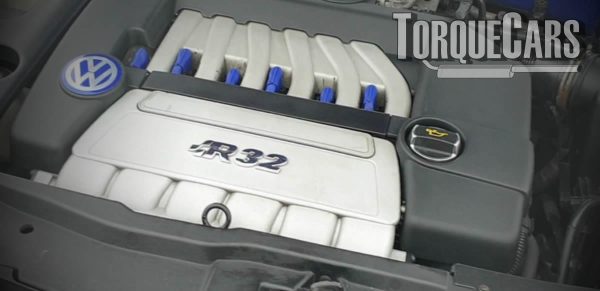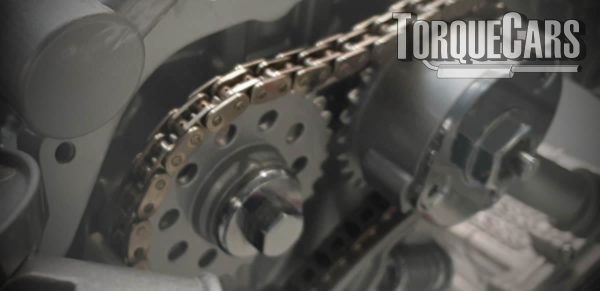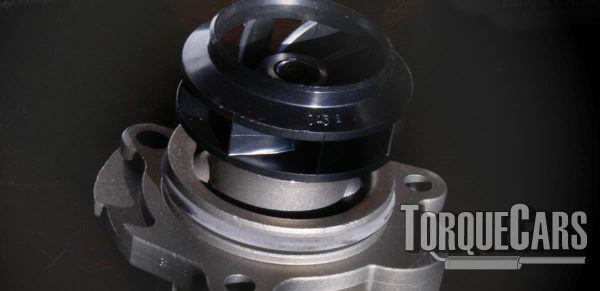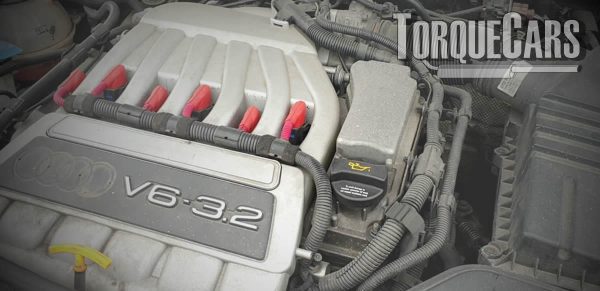Common VR6 Problems and Faults
"Common Problems and Faults on The VAG Group EA390 VR6 Engine"
So for all of the Volkswagen Group engines, we've been discussing some of the problems that are inherent to them, not to highlight that they're particularly unreliable engines but just to flag them up.
Drivers are aware of what they're getting into, and they can keep an eye on some of these things. Often the early signs of a fault, when picked up on, can save much inconvenience and expense in the long term.
It's our turn to look at the VR6 engine. A very clever engine design, not quite a V6 and not quite an inline 6. The narrow V angle requires only one head and single cam for each of the intake and the exhaust.

There were lots of different engine sizes and lots of different versions of the VR6 engine coming out, but there were a few things that just kept popping up.
We have a video to go with this article, if you prefer to watch and listen rather than read so see our VR6 Problems Guide on our YouTube.
We're going to flag them up in this article so that you can be aware of the problems and avoid them.
Common problems Faults and Issues on the EA390 VR6 Engine
- Warm Stall Issue
- Timing chain stretching
- Coolant Temperature Sensor Failures
- Coil pack failures
- Water Pump Problems
- Head Gasket Failure
- Intake Runner Rattle
- Oil Leaks
- Oil Pump on Early 2006 2007 VR6 Engines
- PCV Diaphragm Splitting
Warm Stall Issue
So one of the common issues that you see in articles on the internet is a "warm at stall" issue where the VR6 engine gets hot and just stalls and cuts out on you.
Now, I wouldn't really flag that up as a problem because there was a recall and Volkswagen Group reflashed the ecus to prevent that from happening again.
It has been a problem in the past.
It was certainly quite annoying, but it's a problem that the Volkswagen Group has picked up on and addressed.
If your car is stalling when it's hot and it's had that recall done on it, you've probably got another problem that's unrelated to that common fault, and it's not an unusual fault on any engine.
Timing chain stretching
The engines use timing chains Some versions had two chains, while others only had one.
When the timing chain stretches, it disrupts the entire time in the engine because the cams are now at slightly different durations, and you'll notice rough running, rough idling, and intermittent problems.
The wear and tear and stretching can actually cause it to be misaligned on one of the teeth on the cam gears, which will upset the whole timing of the engine and cause all sorts of problems, or the slack created has a similar effect.

Make sure your timing chain is changed and updated at the correct interval.
I would actually recommend you get it done a little bit sooner than your Volkswagen Audi Group manual states just to be on the safe side, but if you're starting to notice some sort of rough running or rough problems, make sure that you get the timing chain sorted and replaced before it becomes a major issue or breaks on you, causing all sorts of catastrophic engine damage.
Coolant Temperature Sensor Failures
Another issue that kept cropping up was the coolant temperature sensor, which was starting to play out.
It's something that seems to be quite common in quite a few engines.
What I will typically do is cause the engine to have trouble starting.
it might need to be turned over for a longer period of time it might take a few attempts to get the engine started it might start to stutter and splutter when it's actually running.
The engine needs to know how hot it is in order to get all of the timing and fueling correct If the sensor is giving it wrong information, that's going to upset its calculations and lead to poor running.
It's quite a simple, cheap part to change.
If you're experiencing problems with the engine stalling, cutting out, or having starting issues, it would certainly be a good idea just to get that temperature sensor checked and replaced if it is faulty.
Coil pack failures
Coil pack failure was an issue with many Volkswagen Group engines, as well. Primarily due to a bad batch of coil packs, that pass initial inspection but tended to fail prematurely.
That would typically cause a misfire on at least one cylinder, sometimes the faults came in multiple coil packs at the same time.
If you have a vagcom or diagnostic tool and can plug it into the diagnostic port, it will tell you which cylinder is having problems.
If you swap the coil packs over and the problem moves, you've identified the coil pack that is actually the problem.
If the problem stays there and you still get a misfire, you've got another problem.
Check the spark plugs and check the other components that relate to the way the engine burns fuel, but again, coil pack failure is a problem on earlier engines, and most of the modern coil packs don't seem to have this problem.
I think you can assume that the owner has sorted out this problem, addressed it, and replaced the coil pack.
It's not something you need to worry about, and interestingly, the Volkswagen Audi Group ditched the coil packs all together on a lot of the later VR6 engines and went back to having a single ignition coil drive each of the spark plugs.
Water Pump Problems
The water pump had plastic tape; the plastic teeth would often break or it would stop rotating against its metal spindle, which would lead to slow circulation of the coolant.
You'd get higher temperatures in the engine, you'd get some really funny temperature readings, or maybe the temperature would suddenly just jump up.

Keep an eye on the water pump; it's probably a good idea to replace it at the same time as the cam belt or timing chain, and there are metal replacements that are far more durable.
Personally, I think the plastic ones do last quite a long time, and for the cost of a metal one you can usually but 3 or 4 plastic ones. The metal ones cost significantly more, so it certainly makes sense to get that problem addressed before it becomes and issue.
If it's just the water pump causing the problem, then get it replaced and just check the rest of the coolant system to make sure you've got no cooling issues elsewhere.
Head Gasket Failure
Head gasket failure was quite a common problem on the VR6 engines, but now often when the head gaskets are replaced, a lot of people are lazy and they use the old head bolts, which is a really bad idea, particularly on the VR6 engine.
It's essential that you get good-quality bolts Now a lot of the aftermarket bolts are not actually as good; they are often what we call stretch bolts.
As they torque them off, they stretch very slightly giving great clamping force, but herin lies the problem of cheap ones.
If they're made from inferior materials, they'll continue to stretch and start to deform, and that can actually lead to instances where you can almost rotate them by hand; they're really not holding the head on.
I would avoid a lot of the aftermarket ones, particularly from cheaper manufacturers.
There are some good quality versions out there, but if you stick to the original equipment manufacturer head bolts each time you change the head.
Also get a slight skim done on it just to make sure, you'll have no problems.
How do you know the head gasket has gone and you've got a problem?
Well just removing the oil cap and looking underneath is usually enough.
If you notice a white Emulsion a mayonnaise type substance you've got coolant that's been mixing with the oil and that is a pretty good indicator of head gasket problem.
You may also get exhaust gases bubbling through the coolant and if the coolant is very dirty that can also be an indicator of head gasket failure.
If it's starting to burn oil and you've got oil seeping into the cylinders that could also possibly indicate a head gasket problem but often burning oil is down to some other issue but look out for that white mayonnaise because that's that's the biggie.
Intake Runner Rattle
On your VR6 if you notice a rattle around about two thousand to thousand five hundred RPM it could very well well be down to a problem with the intake Runners: Now, most of the time, replacing the intake runner is enough to fix the rattle, but sometimes things get worse.
If it progresses in the worst case scenario you may need to replace the whole intake.
Keep an ear out for that noise, and if it starts to rattle, get on it quickly because it's the sort of damage that will only deteriorate and get worse over time if ignored.
Oil Leaks
Many owners report oil leaks from various locations around the engine, but they're usually nothing to worry about if they bother you.
Removing Parts and redoing the gaskets and resealing everything is usually enough to deal with those oil leaks, but in general, getting into them and fixing them is more trouble and expensive than just living with them.
Oil Pump on Early 2006 2007 VR6 Engines
On the early 2006 and 2007 versions of the VR6 engine, there was quite a common problem with the oil pump The metal it was made from wasn't particularly great, and it would shear off and break, causing a lot of problems for the oil pump and consequently for the rest of the engine.

If you've got an early engine, it's worth checking as a matter of routine that that bolt has been replaced, and if it hasn't, get onto it straight away because it's just a problem waiting to happen The later engines don't have this problem; they've changed the parts that they use and use much better quality bolts now.
PCV Diaphragm Splitting
That shouldn't ever rear its ugly head again, and another thing to watch out for is the positive crankcase Valve diaphragm, the PCV, which sometimes splits now If you notice a whistling noise from the engine, it might indicate that the PCV has gone.
The PCV ensures pressure inside the engine is maintained and regulated, and when it fails you get oil jetting through these pressure differentials and causing problems. Water in oil is another thing the PCV helps to prevent which will cause the oil to degrade and be ineffective if left unchecked.
It can also cause a film on the oil along with sludge build up. Your engine will usually start to misfire when idleing and you'll probably also see oil building up in and around the intake manifold.
Now, fixing it is quite fiddly. It's not in a very accessible part of the engine, it takes quite a few hours, and it's really really fiddly.
But that whistling noise is generally down to a PCV issue, and there are some workarounds.
If you've got a dodgy PCV, there are a few things you can do to the engine to just stop that problem from becoming an issue. Replacing the PCV is the obvious choice, and parts are available from many sources. Bear in mind the same VR6 engine was also used in some other car models, such as the Ford Galaxy and this fact can help track down cheaper replacement part options.
There are also uprated PCV setups, and it is possible to replace it with a better made aluminum unit which lasts much better than the OEM one with a stronger diaphragm.
Serpentine Belt Tensioner Issues
On the vr60s with the serpentine belt, you've got an issue with the tensioner.
That is generally the pulley that tends to fail, and if that serpentine belt does go, you've got big problems in the engine.
At the very least, your water pump, alternator, and oil pump will stop working. If you notice poor voltage or strange temperature fluctuations it will often be down to this tensioner starting to fail.
But it can have catastrophic consequences for the engine if it's not caught in time and addressed.
Just keep on top of your servicing Make sure that you service your VR6 engine and keep it in good condition, and you should have very few problems with it It's a very solid, very reliable engine, and there are reports of people doing hundreds of thousands of miles on it without any significant problems or repairs required.
Please Check out my YouTube channel, we're regularly adding new content...
PLEASE HELP: I NEED YOUR DONATIONS TO COVER THE COSTS OF RUNNING THIS SITE AND KEEP IT RUNNING. I do not charge you to access this website and it saves most TorqueCars readers $100's each year - but we are NON PROFIT and not even covering our costs. To keep us running PLEASE Donate here
If you liked this page please share it with your friends, drop a link to it in your favourite forum or use the bookmarking options to save it to your social media profile.
Feedback - What do You Think?
Please use our forums if you wish to ask a tuning question, and please note we do not sell parts or services, we are just an online magazine.
Help us improve, leave a suggestion or tip
Please watch this video and subscribe to my YouTube channel.

 Click to accept YouTube Cookies & Play.
Click to accept YouTube Cookies & Play.